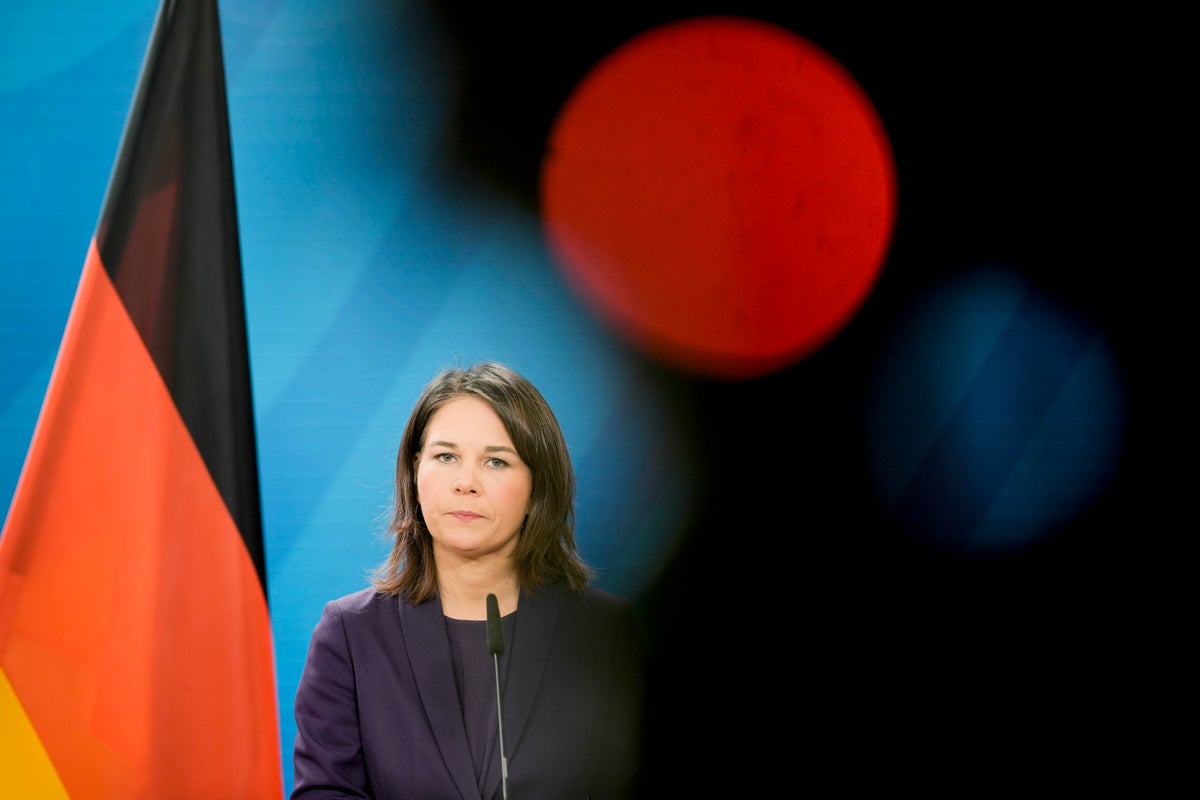
Germany and Israel are worried about an accusation attributed to international inspectors that Iran enriched uranium to 84% purity, the German foreign minister said Tuesday, insisting that there would be no plausible civilian justification for such a move.
Annalena Baerbock spoke at a news conference with Israeli counterpart Eli Cohen days after an Iranian official called the allegation part of a “conspiracy” against Tehran amid tensions over its nuclear program. Germany is one of the world powers with which Iran entered a 2015 nuclear deal that limited its uranium enrichment to 3.67% purity — enough to fuel a nuclear power plant.
Bloomberg first reported on Feb. 19 that inspectors from the International Atomic Energy Agency had detected uranium particles enriched up to 84%. The Vienna-based U.N. nuclear watchdog hasn't denied the report, saying only “that the IAEA is discussing with Iran the results of recent agency verification activities.”
“We are united by concern about the nuclear escalation on Iran's part and about the recent reports about the very high uranium enrichment,” Baerbock said. “There is no plausible civilian justification for such a high enrichment level.”
A spokesman for Iran’s civilian nuclear program, Behrouz Kamalvandi, sought last week to portray any detection of uranium particles enriched to that level as a momentary side effect of trying to reach a finished product of 60% purity — which Tehran already has announced it is producing.
However, uranium at 84% is nearly at weapons-grade levels of 90% — meaning any stockpile of that material could be quickly used to produce an atomic bomb if Iran chooses. Tehran has long insisted its program is for peaceful purposes, though the IAEA, Western intelligence agencies and nonproliferation experts say Iran pursued a secret nuclear weapons program up until 2003.
Cohen pointed to two options to deal with Iran — using a so-called “snapback” mechanism in the Security Council resolution that enshrined the 2015 nuclear deal to reimpose U.N. sanctions, and “to have a credible military option on the table as well.”
“From our intelligence and from our knowledge, this is the right time to work on these two specific steps," he said. Iran is Israel's regional archrival, and recently reinstalled Israeli Prime Minister Benjamin Netanyahu already has threatened military actions against Tehran.
Baerbock stressed the importance of “preventing a nuclear escalation by Iran by diplomatic means, because every alternative would be disastrous.” She added that “it's important ... that the international community make this clear to Iran with a united voice.”







